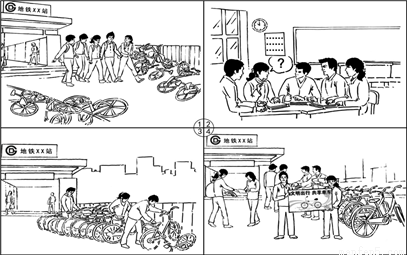题目内容
Statistically, air travel is by far the safest way to travel and you can make flying even safer, just by following these simple rules. As your chances of being involved in an air accident are practically nil(零), many of these rules concern what you should and shouldn’t do to make your journey safer when you are in the air.
●Fly on non-stop routes
Most accidents occur during the take off, climb, descent and landing period of a flight, so flying non-stop reduces your exposure to these complicated procedures.
●Choose larger aircraft
Although small aircrafts have very good safety records, those with more than 30 passenger seats are designed to comply(遵守 )with much stricter regulations and are tested more regularly to make sure they still comply. Also, in the unlikely event of a serious accident, larger aircrafts provide a better opportunity for passenger survival.
●Pay attention to the pre-flight safety briefing(简报)
The information may seem to be repeated, but it's worth listening to the flight attendants. And even if you have flown before, it doesn't mean you know everything about the aircraft you're on, such as the location of the closest emergency exit.
●Store things safely
Never put very heavy articles in the overhead storage bins. They may fall out when someone opens the bin and cause injury. Also, the bin may not be able to hold heavier objects during the violent movements of air caused by the wind.
●Keep your seat belt fastened while you are seated
Cabin crew always tell you this, but it's important. You could be seriously injured if the plane hits the violent movement of air unexpectedly. Always fasten your seat belt if you are told to. The general rule of flying is this: If you are told to do something, do it first and ask questions later.
●Let the flight attendant pour your hot drinks
Flight attendants are trained to handle hot drinks like coffee or tea in a crowded aisle on a moving aircraft, so allow them to pour the drink and hand it to you. Never ask to take a coffee pot from one of them.
1.What is the general reason for these air safety rules?
the general reason for these air safety rules?
A. What to do in the event of a crash.
B. How to avoid sudden change.
C. How to improve safety while you are flying.
D. How to avoid injury.
2.The underlined phrase "The general rule" in the fifth refers to .
A. anything the flight staff tell you to do
B. general safety advice
C. walking around the plane
D. pouring hot drinks
3.Which of the following is NOT true?
A. larger planes have more safety checks and are safer in an accident.
B. Take-offs are safer on non-stop flights than landing.
C. Every aircraft is different, so the safety procedures may be different.
D. Seat belts should be worn to protect against sudden change.
4.The best title should be .
A. The safest way to travel B. Air safety tips
C. Non-stop Routes D. How to take a plane


 ),并在其下面写出该加的词。
),并在其下面写出该加的词。